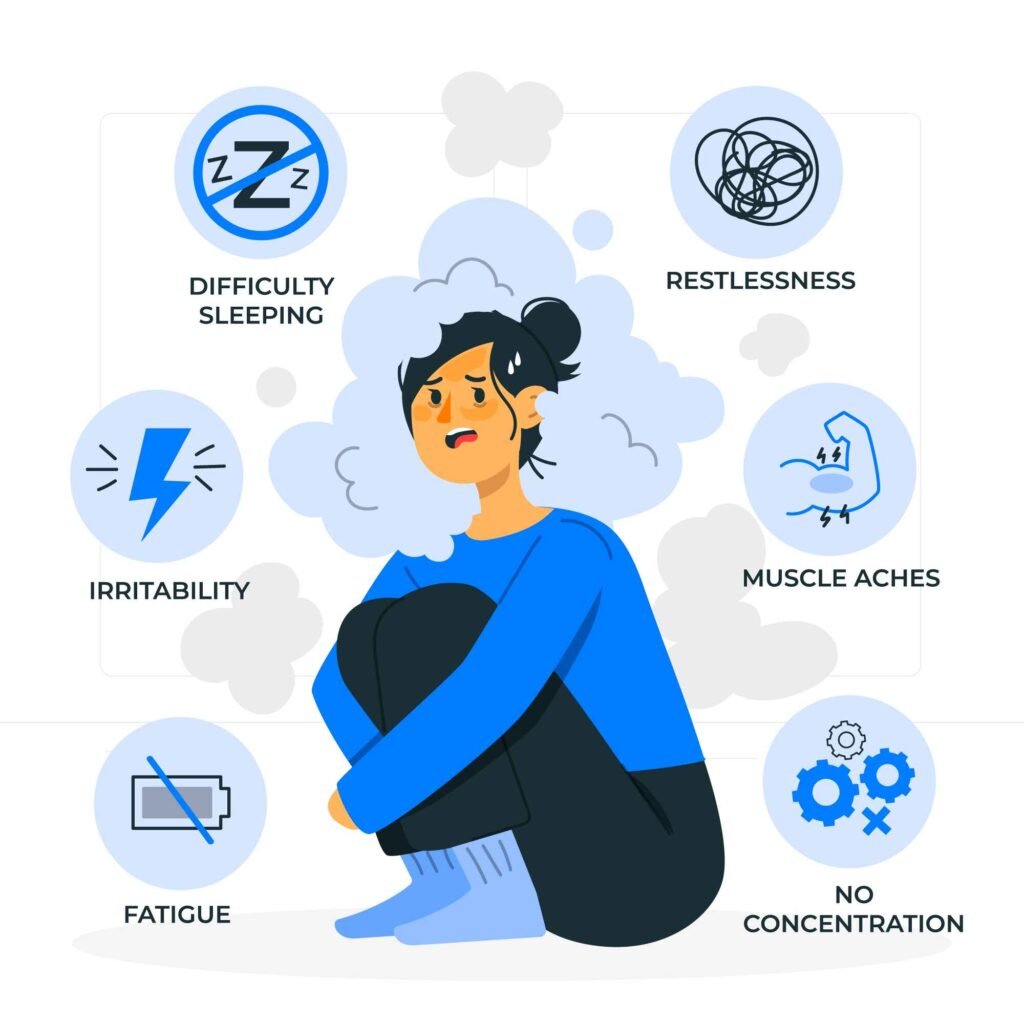
Men and Mental Health: Overcoming Stigma and Seeking Support
Introduction: Why Men’s Mental Health Matters
Mental health is a vital aspect of overall well-being, yet men often face unique challenges in acknowledging and addressing it. Societal norms and stereotypes can make it difficult for men to seek help, leading to silent struggles and worsening mental health conditions. Breaking these barriers is essential to promoting healthier lives for men.
The Current State of Men’s Mental Health
Statistics reveal a stark reality: men are less likely than women to seek professional help for mental health issues. Conditions like depression, anxiety, and post-traumatic stress disorder (PTSD) are common among men, but they often go untreated. Alarmingly, men account for a significant proportion of suicide cases globally, highlighting the need for targeted awareness and intervention.
Common Mental Health Challenges Faced by Men
- Depression and Anxiety: Often dismissed as stress or mood swings, depression and anxiety in men can manifest as irritability, anger, or risk-taking behaviors.
- Substance Abuse: Many men turn to alcohol or drugs as a coping mechanism, further complicating their mental health.
- Work-Related Stress: Societal pressure to be the primary breadwinner can lead to overwhelming stress, burnout, and feelings of inadequacy.
- Trauma and PTSD: Men who have experienced violence, abuse, or military service are at higher risk of developing PTSD.
- Loneliness and Isolation: Cultural norms often discourage men from forming close emotional connections, leading to feelings of isolation.
Understanding the Stigma Around Men’s Mental Health
Historical and Cultural Perspectives
Historically, masculinity has been associated with strength, resilience, and stoicism. Men are often expected to suppress emotions and “tough it out,” a mindset ingrained from childhood. Phrases like “boys don’t cry” perpetuate this harmful belief, discouraging men from expressing vulnerability.
Media and Societal Influences
Mainstream media and societal expectations further reinforce the stigma. Men are often portrayed as problem-solvers and protectors, leaving little room for emotional expression. This stereotype not only affects individual men but also discourages open conversations about mental health.
Consequences of Ignoring Mental Health
When men ignore their mental health, the consequences can be severe, affecting both their personal and professional lives. Unchecked mental health issues can lead to:
- Relationship Struggles: Poor communication and emotional withdrawal can strain relationships with partners, family, and friends.
- Physical Health Decline: Mental health conditions can contribute to high blood pressure, heart disease, and other chronic illnesses.
- Career Challenges: Stress and burnout can hinder job performance, career growth, and financial stability.
- Risky Behaviors: Untreated mental health issues often lead to substance abuse, reckless behavior, or even self-harm.
Breaking the Cycle: Encouraging Men to Seek Support
The first step in overcoming stigma is creating a culture where men feel comfortable discussing their mental health. Friends, family, and workplaces can play a crucial role in fostering supportive environments. Steps to Overcome the Stigma Around Men’s Mental Health. Steps to Overcome the Stigma Around Men’s Mental Health
Overcoming the stigma surrounding men’s mental health requires a multi-faceted approach. This process involves shifting mindsets, encouraging healthy communication, and fostering supportive communities. Here are practical steps men and their loved ones can take to break the barriers:
1. Educate Yourself and Others
Knowledge is power. Understanding the reality of mental health issues can help challenge misconceptions and stereotypes. Education helps debunk harmful myths like “seeking help is a sign of weakness” or “real men don’t talk about feelings.”
Men should learn about common mental health conditions, such as depression, anxiety, PTSD, and bipolar disorder. Recognizing the symptoms and causes of these conditions can encourage early intervention and better coping strategies. Furthermore, sharing this knowledge with others helps build a more informed and supportive community.
2. Normalize Open Conversations
Creating spaces where men can talk freely about their struggles is essential. Whether in family settings, workplaces, or friend groups, open dialogue can dismantle the fear of judgment. Ideally, talking about mental health should be as routine as discussing physical health.
To begin, men can share small challenges or concerns with trusted individuals. Over time, this practice can reduce the fear associated with vulnerability. Similarly, encouraging friends and family members to talk about their feelings fosters a culture of openness. As a result, men feel more supported and less isolated.
3. Lead by Example
Men who openly discuss their mental health can inspire others to do the same. Sharing personal stories about therapy, counseling, or managing stress sends a powerful message: seeking help is not only okay but also necessary.
High-profile figures, such as athletes, actors, and business leaders, are increasingly speaking out about their mental health journeys. Their openness helps break down barriers and sets a precedent for other men to follow. Therefore, by being transparent about their own experiences, men can pave the way for a healthier and more accepting society.
4. Challenge Toxic Masculinity
Toxic masculinity perpetuates harmful behaviors and suppresses emotional expression. Phrases like “man up” or “don’t be a sissy” contribute to the stigma. Consequently, challenging these attitudes by promoting healthier definitions of masculinity is crucial.
True strength lies in self-awareness, emotional intelligence, and seeking help when needed. Encouraging men to embrace these qualities can transform how society views male vulnerability. Moreover, shifting these perceptions benefits everyone, leading to healthier relationships and communities.
How to Seek Support: Practical Steps for Men
Knowing where and how to seek support can be life-changing. Fortunately, there are several actionable steps men can take to prioritize their mental well-being.
1. Talk to a Trusted Friend or Family Member
The first step doesn’t always have to involve a professional. Sharing your thoughts and feelings with someone you trust can provide immediate relief. A supportive conversation can validate your emotions and help you feel less alone. Additionally, talking with loved ones can help you gain new perspectives on your situation.
2. Consider Professional Counseling or Therapy
Therapists and counselors provide a safe, non-judgmental space to explore your feelings and challenges. Mental health professionals are trained to help you develop coping strategies and address underlying issues. Consequently, therapy can be a valuable tool for long-term mental health management.
Therapy options include:
- In-Person Therapy: Traditional face-to-face counseling sessions with licensed professionals.
- Online Therapy: Platforms like BetterHelp or Talkspace offer flexible options for those who prefer virtual sessions.
- Group Therapy: Connecting with others facing similar challenges can foster a sense of community and shared understanding.
3. Explore Helplines and Support Groups
Many organizations offer free, anonymous support for men in crisis. Helplines provide immediate assistance, while support groups offer ongoing connection and understanding. For instance, organizations like Samaritans and the Movember Foundation offer valuable resources for men struggling with mental health issues.
4. Engage in Mindfulness and Self-Care Practices
Incorporating mindfulness and self-care activities into daily routines can significantly improve mental health. Activities like meditation, journaling, and yoga help reduce stress and increase emotional resilience. Furthermore, these practices are accessible and easy to integrate into everyday life.
Some effective mindfulness techniques include:
- Deep Breathing Exercises: Calms the nervous system and reduces anxiety.
- Gratitude Journaling: Focuses on positive aspects of life, fostering a balanced mindset.
- Progressive Muscle Relaxation: Relieves tension by systematically relaxing different muscle groups.
5. Make Physical Exercise a Priority
Exercise is a powerful tool for mental well-being. Regular physical activity releases endorphins, which improve mood and reduce stress. For example, activities like running, strength training, or team sports provide both physical and emotional benefits.
Aim for at least 30 minutes of moderate exercise most days of the week. Additionally, finding an activity you enjoy makes it easier to stick with a routine. Over time, exercise can become a reliable outlet for stress relief and mental clarity.
6. Strive for Work-Life Balance
Burnout and chronic stress are common among men who prioritize work over well-being. Therefore, setting boundaries and making time for hobbies, rest, and social connections can significantly improve mental health.
Simple steps to improve work-life balance include:
- Setting Clear Work Hours: Avoid taking work home whenever possible.
- Taking Regular Breaks: Short breaks during the day improve productivity and mental clarity.
- Scheduling Downtime: Plan activities that bring joy, such as spending time with loved ones or pursuing hobbies.
Building a Supportive Community for Men
Communities play a critical role in fostering healthy mental habits. Here’s how we can all contribute to supporting men’s mental health:
Create Safe Spaces for Open Dialogue
Whether at home, in the workplace, or within community organizations, creating environments where men feel safe to express themselves is essential. Support groups, workshops, and mental health events can provide these spaces. Moreover, encouraging men to speak up helps normalize vulnerability.
Promote Workplace Mental Health Programs
Companies can prioritize mental health by offering resources such as Employee Assistance Programs (EAPs), counseling services, and wellness initiatives. Additionally, encouraging mental health days and open discussions helps break the stigma and create a healthier work environment.
Highlight Positive Role Models
Men who advocate for mental health can inspire others to do the same. Whether they are celebrities or local community leaders, positive role models show that seeking help is a sign of strength. Consequently, these role models play a key role in breaking down barriers and changing perceptions.
Support Your Friends and Family Members
If a male friend or family member seems to be struggling, offer support by:
Checking In Regularly: Consistent support shows you care and helps them feel valued.
Listening Without Judgment: Let them know it’s okay to talk.
Encouraging Professional Help: Suggest therapy or counseling if needed.
The Role of Society in Shaping Men’s Mental Health
Society plays a crucial role in how men perceive and handle their mental health. From childhood, boys are often taught to suppress emotions and prioritize strength. These early lessons can have long-lasting effects, shaping how men respond to stress, trauma, and personal challenges.
By addressing societal norms and stereotypes, we can create a healthier environment for men to thrive mentally and emotionally.
Challenging Traditional Masculinity Norms
Traditional definitions of masculinity emphasize traits like strength, stoicism, and dominance. While these qualities aren’t inherently harmful, they can become toxic when they discourage emotional expression. Men who feel they must always appear strong may avoid seeking help, fearing they’ll be judged as weak.
To combat this, we need to promote a broader understanding of masculinity. Strength isn’t just about physical power or emotional suppression; it also includes self-awareness, vulnerability, and the ability to ask for help when needed. By redefining masculinity, society can encourage healthier mental habits for men.
Media’s Impact on Men’s Mental Health
The media often portrays men as action heroes, problem-solvers, or stoic figures who rarely show vulnerability. While these portrayals can be entertaining, they also reinforce harmful stereotypes. Men may feel pressured to conform to these unrealistic standards, suppressing their emotions and mental struggles.
On the other hand, when the media highlights men who openly discuss mental health, it helps break down these barriers. Positive representation of men seeking therapy, expressing emotions, or supporting others can inspire change. Consequently, promoting diverse male role models in the media can have a lasting impact on men’s mental well-being.
Practical Self-Help Strategies for Men’s Mental Health
While professional support is vital, self-help strategies can significantly enhance mental well-being. Incorporating daily practices that support mental health can make a big difference. Here are some effective self-help strategies men can adopt:
1. Develop a Daily Routine
Consistency and structure can provide stability, especially during challenging times. A daily routine that includes work, exercise, hobbies, and relaxation helps create balance and reduces stress. Additionally, routines give a sense of purpose and control, which can be empowering.
Start by setting regular sleep and wake times, scheduling breaks, and planning activities that bring joy. Over time, a structured routine can improve both mental and physical health.
2. Practice Mindfulness and Meditation
Mindfulness and meditation help men stay present and reduce anxiety. These practices encourage awareness of thoughts and feelings without judgment. For men who struggle with overwhelming emotions, mindfulness can be a powerful tool.
Simple mindfulness exercises include:
- 5-Minute Breathing Meditation: Focus on your breath to calm your mind.
- Body Scan Relaxation: Pay attention to different parts of your body, releasing tension.
- Mindful Walking: Walk slowly and notice your surroundings and sensations.
Practicing mindfulness regularly can improve mental clarity, reduce stress, and promote emotional balance.
3. Engage in Creative Outlets
Creative activities like writing, painting, or playing music provide an excellent way to express emotions. For men who find it difficult to talk about their feelings, creative outlets can offer a safe and productive release.
Consider keeping a journal to write about thoughts, feelings, or daily experiences. Expressing yourself creatively can help you process emotions and gain new perspectives.
4. Stay Connected with Supportive Friends
Maintaining strong social connections is crucial for mental health. Even though men are often discouraged from forming deep emotional bonds, friendships provide support, validation, and a sense of belonging.
Schedule regular catch-ups with friends, whether through phone calls, video chats, or in-person meetings. Talking, sharing experiences, or simply spending time together can alleviate feelings of loneliness and isolation.
5. Set Achievable Goals
Setting realistic goals gives a sense of purpose and achievement. These goals can be personal, professional, or related to mental well-being. Breaking larger goals into smaller, manageable tasks makes them less overwhelming.
For instance, if you’re struggling with anxiety, a goal could be attending one therapy session per week or practicing deep breathing exercises daily. Achieving these small steps can build confidence and resilience over time.
6. Limit Negative Influences
Negative influences, such as toxic relationships or excessive social media use, can harm mental health. Therefore, it’s essential to recognize and minimize these influences.
Unfollow accounts that trigger stress, set boundaries with people who drain your energy, and create a healthier digital environment. Reducing negativity creates space for more positive and uplifting experiences.
The Importance of Building Emotional Resilience
Emotional resilience is the ability to adapt to stress, setbacks, and challenges. Fortunately, resilience is a skill that can be developed over time. Building emotional resilience helps men navigate life’s difficulties without becoming overwhelmed.
How to Build Emotional Resilience
- Accept That Setbacks Are Part of Life: Understanding that everyone faces challenges can help reframe setbacks as opportunities for growth. Instead of seeing failure as a weakness, view it as a chance to learn and improve.
- Develop Problem-Solving Skills: When faced with challenges, take a step back and analyze the situation objectively. Consider possible solutions and their outcomes. Taking an active approach to problem-solving can reduce feelings of helplessness.
- Cultivate a Positive Mindset: Focus on the positives, even in difficult situations. Gratitude practices, such as writing down three things you’re grateful for each day, can shift your mindset and build optimism.
- Strengthen Emotional Awareness: Recognizing and understanding your emotions helps you respond more effectively. Instead of reacting impulsively, take a moment to process your feelings and choose a balanced response.
- Seek Support When Needed: Resilience doesn’t mean handling everything alone. Reaching out for help, whether from friends, family, or professionals, demonstrates strength and self-awareness.
Creating a Future Where Men Thrive Mentally and Emotionally
Creating a future where men feel comfortable addressing their mental health requires collective effort. Everyone — from individuals to communities and organizations — plays a role in fostering this change.
How Communities Can Support Men’s Mental Health
- Promote Awareness Campaigns: Organize events and workshops that focus on men’s mental health. Awareness initiatives help normalize conversations and reduce stigma.
- Encourage Mentorship Programs: Pairing younger men with mentors who prioritize mental health creates positive role models and supportive networks.
- Offer Mental Health Resources: Ensure that mental health services are accessible, affordable, and tailored to men’s needs.
How Individuals Can Contribute
- Check In Regularly: Ask the men in your life how they’re doing. A simple “How are you really feeling?” can open the door to meaningful conversations.
- Be a Safe Space: Offer non-judgmental support and listen actively. Let men know it’s okay to be vulnerable.
- Challenge Stereotypes: Call out harmful stereotypes and encourage healthier expressions of masculinity.



